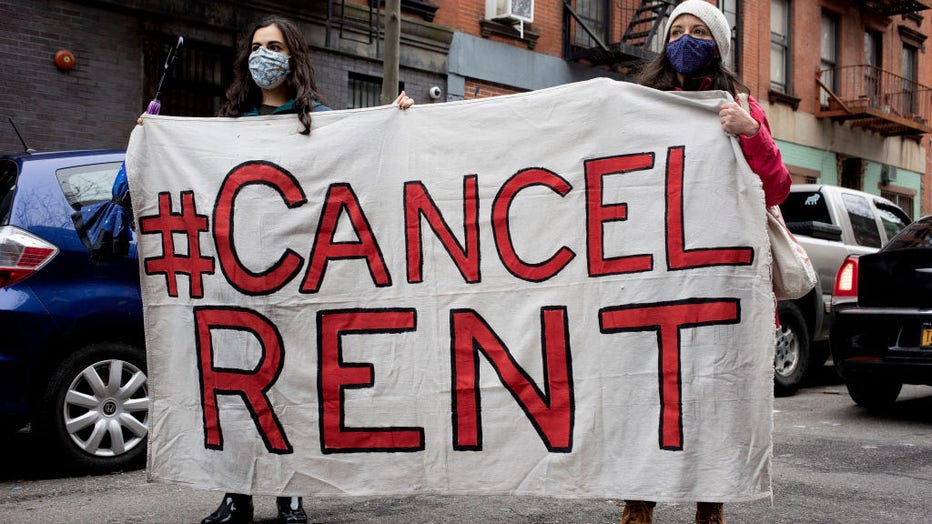Ban on renter evictions during COVID-19 pandemic extended through June 30
WASHINGTON - The Biden administration is extending a federal moratorium on evictions of tenants who have fallen behind on rent during the coronavirus pandemic.
The Centers for Disease Control and Prevention on Monday moved to continue the pandemic-related protection, which had been scheduled to expire on Wednesday. The moratorium is now extended through the end of June.
The ban, initially put in place last year, provides protection for renters out of concern that having families lose their homes and move into shelters or share crowded conditions with relatives or friends during the pandemic would further spread the highly contagious virus, which has killed more than 545,000 people in the United States.
To be eligible for the housing protection, renters must earn $198,000 annually or less for couples filing jointly, or $99,000 for single filers; demonstrate that they’ve sought government help to pay the rent; declare that they can’t pay because of COVID-19 hardships; and affirm they are likely to become homeless if evicted.
In February, President Joe Biden extended a ban on housing foreclosures to June 30 to help homeowners struggling during the pandemic.

FILE - Tenant rights activists protest what they claim to be inadequate legislative relief for renters during the COVID-19 pandemic and to call for the cancellation of rent on Feb. 28, 2021 in the East Village neighborhood of New York City. (Photo by
Housing advocates had generally expected the extension of the tenant eviction moratorium and had been lobbying the Biden administration, saying it was too early in the country's economic recovery to let the ban lapse.
John Pollock, coordinator of the National Coalition for a Civil Right to Counsel, said last week that the moratorium was "the only thing holding back the flood" of evictions that would spiral through the still-shaky American economy.
Pollack said current surveys show that 18.4% of all tenants owe back rent. That number also revealed significant racial disparity: The percentage of Black tenants behind on their rent was 32.9%.
But some housing advocates were disappointed that Biden merely extended the ban without making any changes. Diane Yentel, president of the National Low Income Housing Coalition, said she and others had pushed to make the ban’s protections automatic and universal. Currently, tenants have to actively take steps to invoke the ban’s protections, which can lead to exploitation of those who don't know their rights or don't understand the process.
Also, some jurisdictions have allowed landlords to initiate the eviction process in court, a tactic that scared many families into leaving rather than having the eviction proceedings, even unfinished ones, on their records.
"While the Biden administration is well aware of the shortcomings in the moratorium order that allow some evictions to proceed during the pandemic, the CDC director did not correct them," Yentel said.
Instead, the CDC "simply extended President Trump’s original order, leaving the loopholes and flaws in place, a disappointing decision that will result in more harmful evictions during the pandemic," she said.
___
Associated Press writer Michael Casey in Boston contributed to this report.

